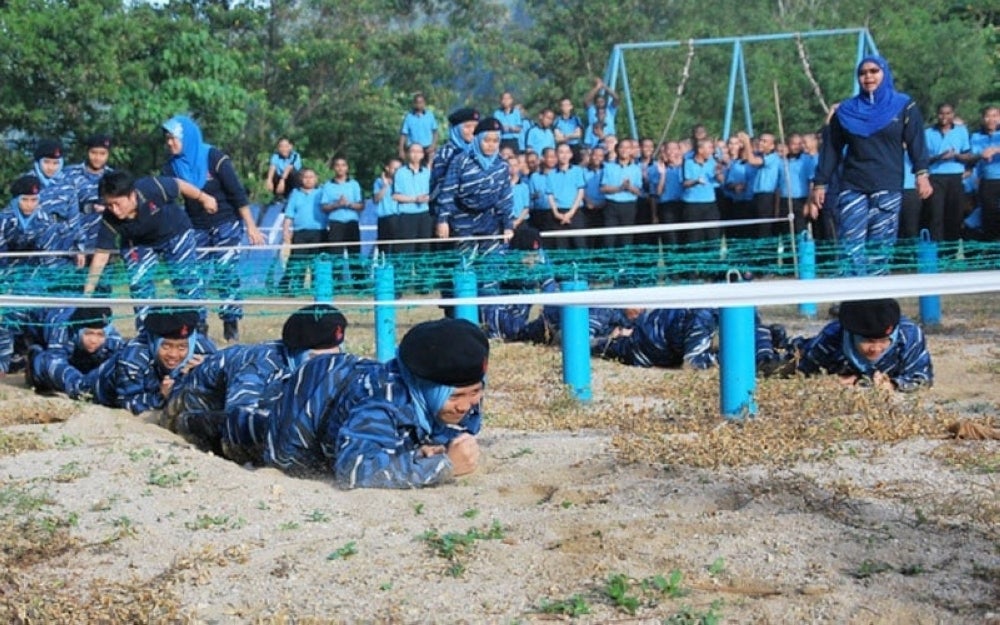PLKN 3.0: Kids, this is why you should not opt for a deferment

When Defence Minister Datuk Seri Mohamad Hasan announced that they were going to revive the Program Latihan Khidmat Negara (PLKN) 3.0, or National Service Training Programme, my mind went, “Yes, those Gen-Z kids really need to have some sort of training!" However, in a recent turn of events that has sparked both humour and concern on social media, the Defence Ministry announced that the PLKN, which was first introduced in 2003, would be for ‘youths’ aged between 16 and 35.
Social media went abuzz with the announcement, with those who thought they had avoided the training scared of the possibility of being re-selected.
The Defence Ministry again clarified their statements, saying that the PLKN 3.0 would only be for those born in 2007, but they can defer until age 35.
According to the ministry, trainees will be selected based on their year of birth, with a specific birth year cut-off for trainees to commence PLKN 3.0.
"If the selected trainees cannot participate in national service training for valid reasons, they can apply for deferment.
"The maximum age to be a trainee is up to 35 years," it said in a statement, hoping that the clarification would resolve the confusion and concerns among the public regarding the age requirements for PLKN 3.0 trainees.
For the record, the PLKN 3.0 is part of a renewed initiative after its previous discontinuation in 2018.
The initiative is structured into two phases, although specifics on these phases are not fully detailed at the moment but would take place for 45 days of basic army training as outlined by the Defence Ministry.
But if you get selected to be a part of the trainee programme for PLKN 3.0, let me take you back to 2007, when I did my PLKN training as a 17-year-old, and why you should not defer the training. Here are the things that I had to endure:
- Three months at the camp without going home, only being able to see my parents twice a month.
- Sleeping in a dorm room (with a bed that needs to be neatly made, military style) with probably twenty other people with all kinds of behaviour Side note: one of my dormmates keeps getting ‘possessed’ every once in a while, so that was scary, not fun.
- I woke up at 5am to shower (without hot water) if you want to skip the queue right before the early morning exercise, which consists of warm-ups and probably a three-kilometre run around the campsite.
- Morning march, evening march.Perform obstacle courses that include running, climbing, jumping, crawling, swimming, and balancing elements that tested my speed, endurance, and agility.
- Firing a M16 rifle (fun!)
- Join kayak competitions with other nearby camps.
- Ceramah or night activities.Attend patriotism classes, unity classes, and several other classes daily.
- Waking up to a song entitled “Hadapi dengan Senyuman” (face it with a smile) blasted on the speaker daily, especially on Sunday mornings.
Those are just the things that I can recall, probably a bunch of other experiences that I have probably surpressed 10 years later.
However, what I want to emphasise is that those are the kinds of things that are fun to do for teenagers, for those with fewer commitments, but I do not think it would be fun for those above 30.
When I was 18, being far away from family for the first time seemed exciting, although it’s a military camp. I have always been interested in these ‘extreme sports’ so I was all up for it, but if you ask me now, I would not want to go as I am stuck with a full-time job and a small family that needs me.
Imagine if you keep on deferring your call for ‘national duty’ and end up being called for real while you are in your 30s.
Honestly, I don’t think my body could ever take all the ‘pressure’ of doing extreme stuff. You should know how bodies after 30s ache even when you sneeze.
Also, imagine a camp comprising a mixture of millennials and Gen-Zs. I personally believe the difference in thought process, experience, and, basically, the generational gap would cause a circus in the camp.
Once we have entered the workforce, married life, and many other commitments such as mortgages, rent, and others that we did not have to think about as teenagers, it would be hard to commit to something like PLKN 3.0.
The programme, when it was first introduced, was initially aimed at 18-year-old Malaysian citizens to promote patriotism, encourage racial harmony, and improve personal development and soft skills, and I think those above 25 years old are way past that.
So, if you get the call for the newly revamped PLKN 3.0, go for it!












